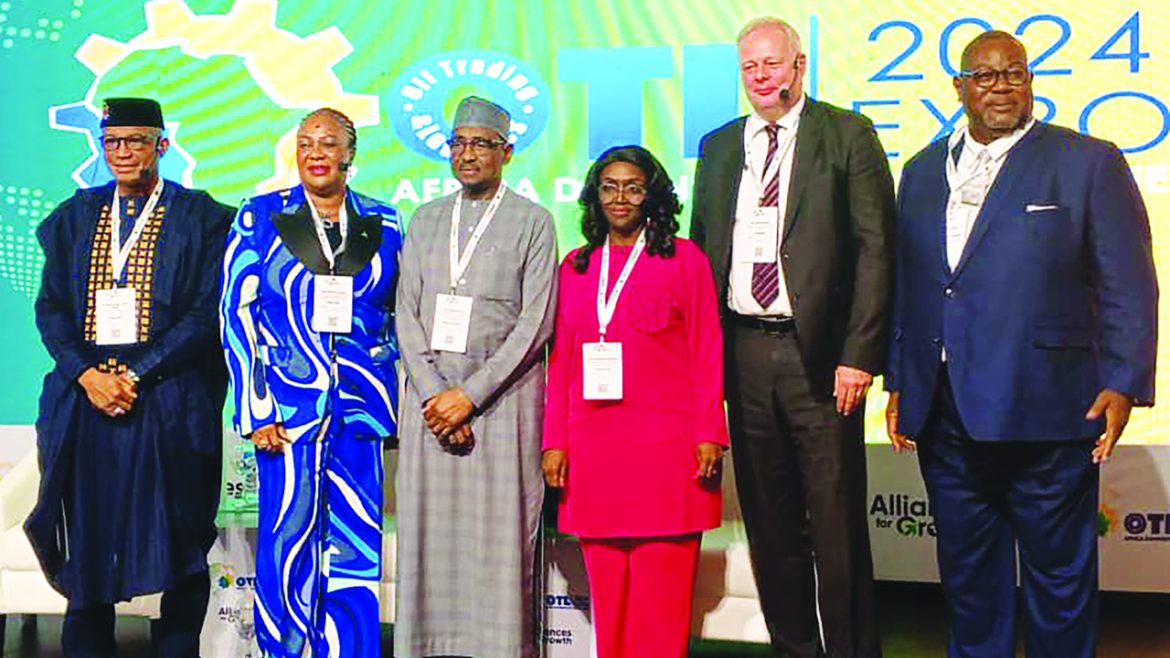LAGOS, Nigeria – Stakeholders have stressed the urgent need for massive infrastructure development across Africa to drive sustainable economic growth, job creation, and industrial competitiveness.
This position was made known during a panel session titled “Infrastructure Development to Boost Africa’s Economy”, which focused on identifying investment opportunities, addressing financing gaps, and encouraging collaboration between governments and the private sector.
Panelists included public policy experts, private sector executives, development finance leaders, and infrastructure consultants from across the continent, who all agreed that solving Africa’s infrastructure deficit is crucial for unlocking the continent’s full economic potential.
They noted that despite Africa being home to over 1.4 billion people and rich in natural and human resources, the continent continues to lag behind in key infrastructure indices, with deficits in transportation, power, housing, water supply, digital connectivity, and logistics.
Speaking at the event, Mrs. Nnenna Uzo-Okonkwo, Director at the Nigeria Infrastructure Advisory Council, said poor infrastructure has remained a major constraint to economic productivity and trade growth in Africa.
“To transform Africa’s economy, we must invest heavily in roads, railways, airports, ports, and power infrastructure. The current infrastructure gap, estimated by the African Development Bank (AfDB) at between $68 billion and $108 billion annually, must be closed through innovative financing, public-private partnerships, and regional cooperation,” she said.
She stressed that cross-border transport networks and efficient logistics systems are particularly essential to support the African Continental Free Trade Area (AfCFTA) and enhance the movement of goods, services, and people.
Also speaking, Mr. Elias Banda, a regional project finance specialist, emphasised the role of private capital and blended finance in driving infrastructure growth.
“Governments alone cannot shoulder the burden of infrastructure financing. What we need is an enabling policy environment that gives confidence to private investors, coupled with transparency, reduced bureaucratic risks, and stable returns,” he stated.
He called on African governments to strengthen institutions, adopt bankable project frameworks, and ensure policy continuity to make the infrastructure sector attractive to both local and foreign investors.
Mrs. Ramatou Diallo, a consultant on climate-resilient infrastructure, highlighted the importance of sustainability and green financing in infrastructure development.
“Our infrastructure must be climate-smart. We must build resilient roads, renewable energy systems, water management systems, and smart cities that can withstand extreme weather conditions and environmental changes,” she said.
She urged governments to integrate sustainability criteria into public procurement, citing climate financing instruments such as green bonds, carbon credit markets, and ESG investments as viable tools to mobilise funds.
The panel also addressed the importance of regional integration and intra-African cooperation in bridging infrastructure gaps. Speakers cited projects like the Lagos-Abidjan Corridor Highway, Lamu Port-South Sudan-Ethiopia Transport Corridor (LAPSSET), and the Trans-Saharan Highway as examples of how cross-border investments can drive growth and stability.
In her remarks, Mrs. Kemi Fagbemi, CEO of a Nigerian infrastructure consortium, said collaboration and long-term planning are key to reducing infrastructure deficits.
“The private sector has the expertise, but government has the scale. When both work together, we can deliver rail networks, housing estates, road interchanges, energy corridors, and digital highways that meet Africa’s current and future needs,” she said.
She also called on African governments to adopt national infrastructure masterplans backed by solid data, stakeholder input, and legal frameworks that promote continuity across political cycles.
The session ended with a call for stronger partnerships between governments, international financial institutions, development agencies, and African businesses to mobilise capital, share technical know-how, and develop sustainable infrastructure models.
Participants urged policymakers to remove regulatory bottlenecks, embrace digital infrastructure tools, and promote inclusive development that leaves no region or population group behind.
